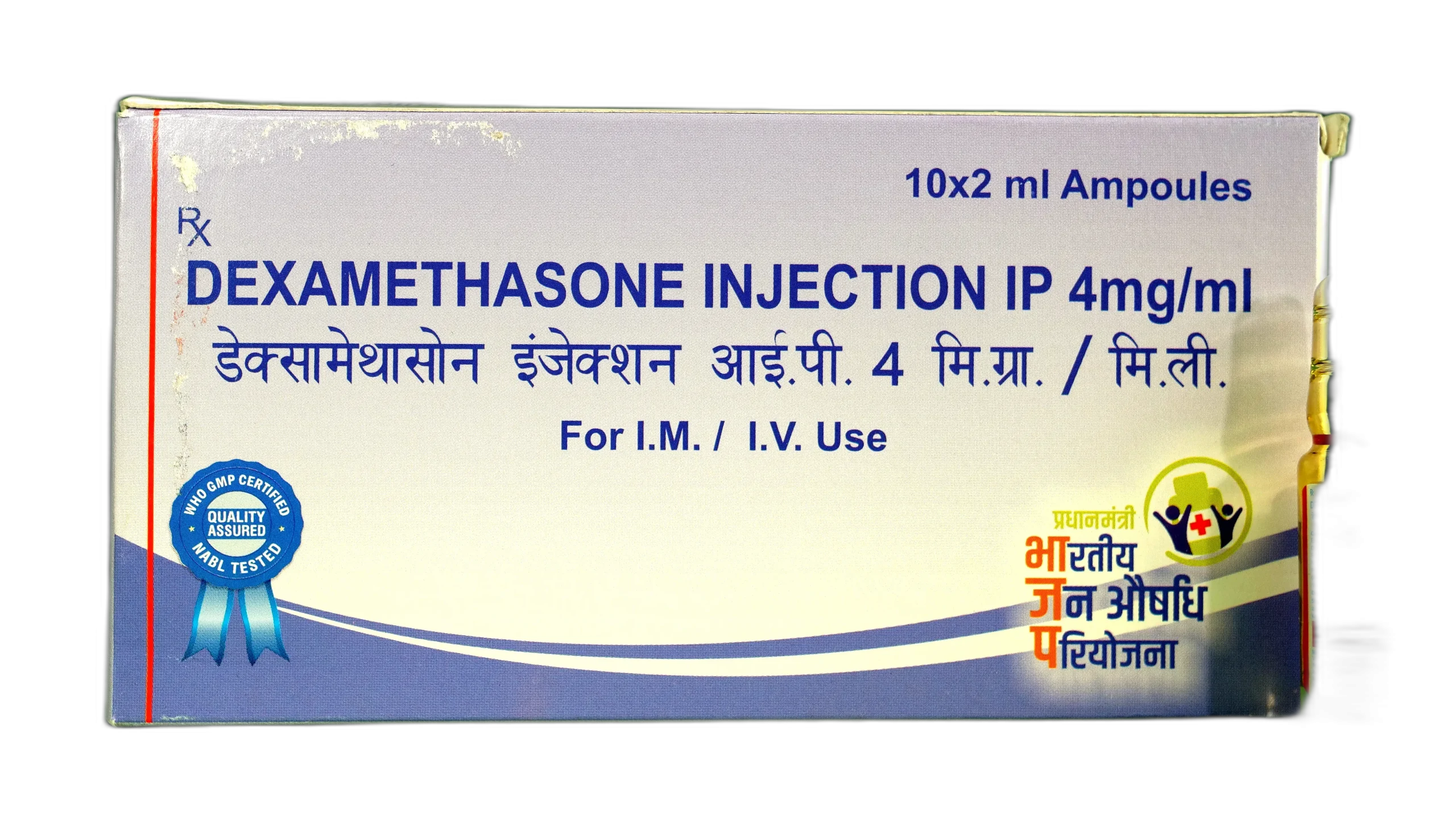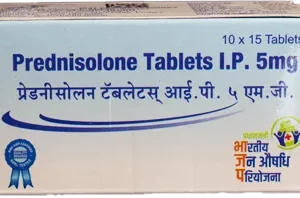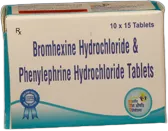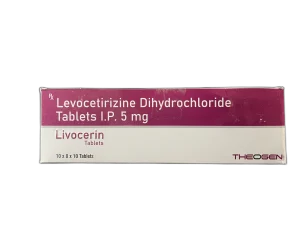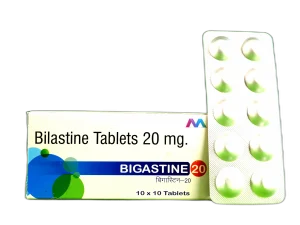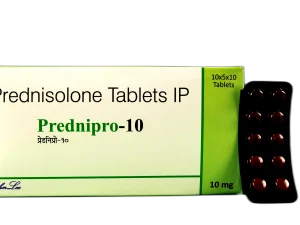◉Dexamethasone 4mg Inj. is a medication that comes in an injectable form and contains 4 mg of the active ingredient, dexamethasone, per 1 ml of solution. Each vial of Dexamethasone 4mg Inj. contains 2 ml of solution.$$Dexamethasone is a type of steroid medication that belongs to the class of glucocorticoids. It is commonly used to treat various conditions, such as inflammation, allergies, autoimmune disorders, and some types of cancers.
◉ As an injectable medication, Dexamethasone 4mg Inj. is typically given directly into a vein, muscle, or joint by a healthcare professional. The dosage and frequency of administration will vary depending on the individual’s condition and medical history.
◉ It is important to note that Dexamethasone 4mg Inj. should only be used under the guidance and supervision of a healthcare professional. Like all medications, it may cause side effects or interact with other medications, so it is essential to discuss any potential risks or concerns with a healthcare provider before use.
Composition of Drug
◉This drug contain Dexamethasone 4 mg / 1 ml .
How does the Drug work
◉Dexamethasone is a type of corticosteroid medication that works by suppressing the body’s immune system and reducing inflammation. It is used to treat a variety of medical conditions, including allergies, asthma, and certain autoimmune disorders
At a dose of 4 mg, dexamethasone is considered a low dose and is commonly used to treat inflammatory conditions that are localized to a specific area of the body. The medication is typically administered in the form of a tablet, which is taken orally
When dexamethasone is ingested, it is absorbed into the bloodstream and travels to the site of inflammation in the body. Once there, it works by inhibiting the production of inflammatory chemicals called cytokines. By reducing the amount of cytokines in the affected area, dexamethasone helps to alleviate swelling, redness, and pain associated with inflammation
In addition to its anti-inflammatory properties, dexamethasone also has immunosuppressive effects. This means that it can help to reduce the activity of the immune system, which can be useful in certain situations, such as preventing rejection of transplanted organs or treating autoimmune disorders.
